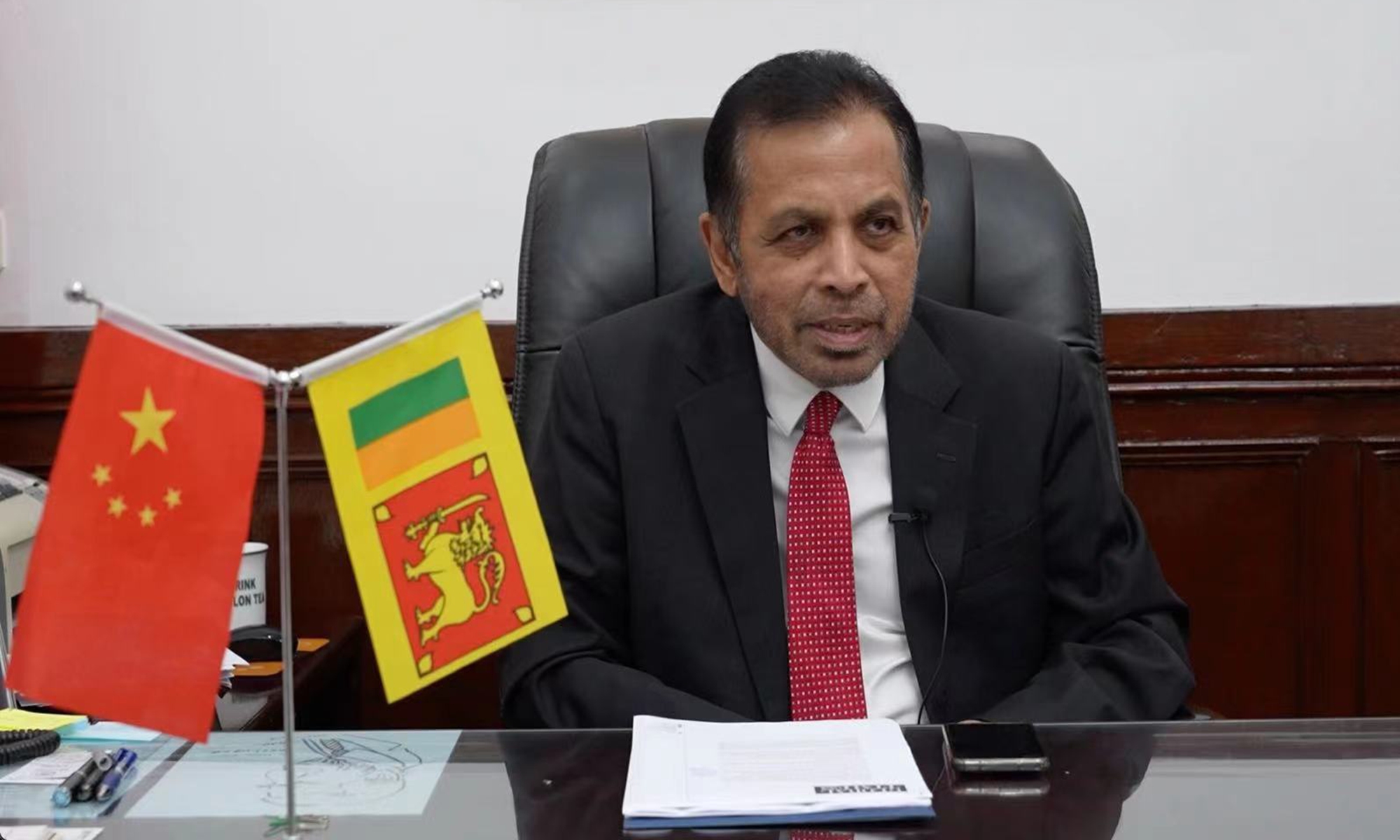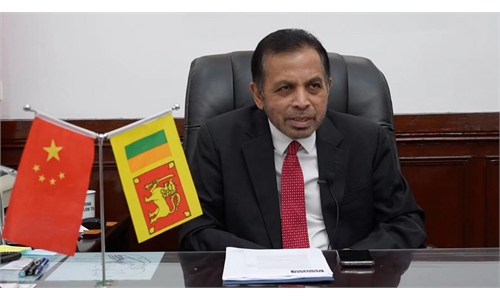
Sri Lanka's Ambassador to China Palitha Kohona. Photo: Li Jieyi/GT
Sri Lankan President Ranil Wickremesinghe thanked China for the emergency assistance it extended to Sri Lanka amid the latter's ongoing economic difficulties, Sri Lanka's Ambassador to China Palitha Kohona told the Global Times in an exclusive interview on Wednesday, stressing that it is China's assistance, when other countries were unwilling or unable to assist the South Asia island nation, that helped Sri Lanka achieve lots of infrastructure developments as well as economic recovery.
Kohona also slammed some Western reports for promoting a "particular politically motivated propaganda" and being "grossly inaccurate and misplaced" in suggesting China is responsible for Sri Lanka's difficult financial situation.
Wickremesinghe has expressed his appreciation for China's emergency assistance and other help extended to Sri Lanka at a difficult time for the country, and emphasized that Sri Lankans will cherish this gesture and Sri Lanka is confident that the close bilateral relationship will continue to be strengthened to the benefit of both countries, Kohona said. Wickremesinghe was sworn in as Sri Lankan president on July 21.
Wickremesinghe expressed his appreciation after China provided shipments of emergency humanitarian aid including 1,000 tons of rice that was handed over on July 14.
As part of China's 500 million-yuan ($73.9 million) emergency humanitarian aid to Sri Lanka was announced earlier, the first two shipments of Chinese rice, totaling 2,000 tons, arrived at the port of Colombo on June 28 and July 8.
Kohona said that Wickremesinghe will visit China and other friendly countries in the coming months, although no date for the trip has been mentioned at this stage.
Kohona's interview was conducted when some Western media continued to maliciously accuse China of causing Sri Lanka's debt crisis and claimed China was one of Sri Lanka's two largest foreign creditors.
"Much has been said and insinuated, in parts of the media, about the Chinese loans, largely in ignorance or to promote a particular politically motivated propaganda line about Sri Lanka's debt to China," Kohona said.
Suggesting that China is responsible for Sri Lanka's current dire financial situation is grossly inaccurate and misplaced, he said.
The ambassador stressed that it is important to underline that only around 10 percent of Sri Lanka's external debt is owed to China, and much more is owed to multilateral institutions like the World Bank and the Asian Development Bank. Similarly, a considerable portion of the external debt is owed to institutional investors, mainly from the West, including Wall Street.
The interest rates charged by Chinese lenders have been favorable. What is more, it is Sri Lanka that sought China's assistance in order to recover and reconstruct after the end of the "devastating 27-year terrorist-inspired internal conflict," at a time when "other countries were unwilling or unable to assist Sri Lanka," Kohona said, noting that it was shown from the impressive highways, railway extensions, harbors, airports and other infrastructure developments the nation has today.
The envoy specifically mentioned Hambantota Port, saying the feasibility studies were initially completed by two Canadian and Danish firms, which recommended the project in very enthusiastic terms, but the funding required for its construction was not available from any source that Sri Lanka approached, including the World Bank.
"Eventually, we secured the funds from China, after detailed negotiations," Kohona said.
Many Western media outlets described Hambantota Port as a "debt trap" project, but Kohona told the Global Times in a previous interview that this is a gross exaggeration. The funding received from the Chinese lessee of the port was not used to repay the China loans, but to repay loans from other lenders who are not Chinese, he said.



